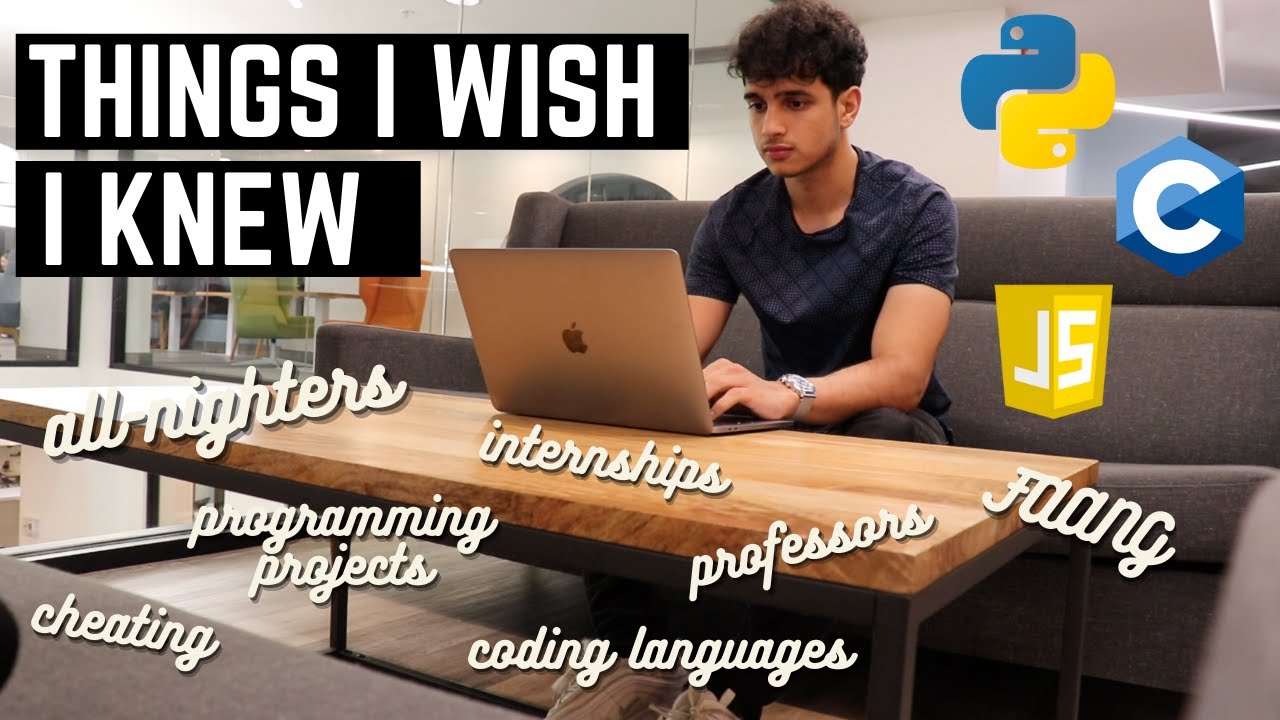How anyone can use computer science principles to solve everyday problems | Rameez Virji | TEDxYYC
Summary
TLDRThe speaker shares a personal story of using computer science to address a common fear of needles, particularly in the context of vaccinations. By applying computer science principles such as determining scope, considering use cases, and separating physical and logical factors, the speaker devised an innovative solution—a pill for vaccine delivery. This approach demonstrates the power of computer science in solving diverse problems beyond the tech field, inspiring a more efficient and creative problem-solving mindset.
Takeaways
- 😁 The speaker aims to demonstrate how computer science can be applied to solve everyday problems, including a specific medical issue.
- 👴 The story is inspired by the speaker's late grandfather, who had a fear of needles, impacting his willingness to get vaccinations.
- 🧪 Commonality of the problem: The fear of needles, or enetophobia, is widespread among people of all ages.
- 💡 The challenge: To design an alternative to hypodermic needles for delivering medicine, especially for Canada's aging population.
- 💻 The speaker's background: Passionate about computer science but not medicine, yet uses computer science to approach the medical problem.
- 🤖 Definition of computer science: The study of automatic, algorithmic processes that scale and manipulate large amounts of data efficiently.
- 🔍 Problem-solving in computer science: Focusing on simplifying complex problems by determining scope and ignoring irrelevant data.
- 📋 Use cases in problem-solving: Considering different perspectives of those who will benefit from the solution.
- 🔑 Identifying key factors: Concentrating on the most relevant aspects of the problem to devise a tailored solution.
- 🧠 Abstracting the problem: Dividing it into physical limitations and areas open to creative solutions, akin to functional abstraction in computer science.
- 🛫 Result of the approach: The development of a pill for vaccine delivery that is safer, cheaper, and less intimidating than needles.
- 🌟 Broad applicability: The speaker believes that computer science principles can be applied to solve problems across various fields.
Q & A
What is the main challenge the speaker is addressing in the script?
-The main challenge the speaker is addressing is the fear of needles, or enetophobia, and its impact on people's willingness to get regular vaccinations.
How did the speaker's late grandfather's fear of needles inspire the speaker's project?
-The speaker's late grandfather's fear of needles, despite his concern for his health, inspired the speaker to find an alternative to hypodermic needles for delivering medicine.
What is the speaker's educational background and how does it relate to the problem at hand?
-The speaker's background and passion lie in computer science, which they sought to use innovatively to solve a medical problem related to needle fear.
What is computer science and how does it differ from other scientific fields?
-Computer science is the study of automatic, algorithmic processes that scale. It focuses on manipulating large amounts of data effectively and efficiently through algorithms.
What problem-solving paradigm does computer science teach its practitioners?
-Computer science teaches its practitioners to look at complicated problems in a less complicated light, focusing on determining scope and ignoring irrelevant data.
What is the concept of 'use cases' in computer science and how does it apply to the speaker's project?
-Use cases in computer science involve considering the problem from the perspective of different people who will benefit from the solution. The speaker applied this by considering various scenarios such as the needs of their needle-fearing grandfather, people in developing countries, and individuals with diabetes.
How did the speaker simplify the problem of needle fear by using computer science strategies?
-The speaker simplified the problem by boiling it down into its base variables, considering only relevant factors, and ignoring out-of-scope elements, which is a strategy known as determining scope in computer science.
What are the physical and logical factors the speaker abstracted the problem into?
-The speaker abstracted the problem into physical factors, such as the need for an oral vaccine that a human can swallow, and logical factors, which involve the creative process of how the system delivers the payload to the bloodstream.
What is functional abstraction in computer science and how does it relate to the speaker's approach?
-Functional abstraction in computer science is a concept that helps to understand which limitations are actual limits and which might be self-imposed. The speaker used this concept to identify which parts of the problem were limiting and which were flexible.
What was the outcome of the speaker's application of computer science principles to the non-technological problem?
-The outcome was the development of a pill for vaccines and other medicines that is safer, cheaper, easier to transport and deliver, and less intimidating than a hypodermic needle.
How does the speaker believe computer science principles can be applied to solve problems in various fields?
-The speaker believes that computer science principles can be applied to solve problems in medicine, arts, business, and even at home, by encouraging people to use these principles to tackle everyday challenges.
Outlines

このセクションは有料ユーザー限定です。 アクセスするには、アップグレードをお願いします。
今すぐアップグレードMindmap

このセクションは有料ユーザー限定です。 アクセスするには、アップグレードをお願いします。
今すぐアップグレードKeywords

このセクションは有料ユーザー限定です。 アクセスするには、アップグレードをお願いします。
今すぐアップグレードHighlights

このセクションは有料ユーザー限定です。 アクセスするには、アップグレードをお願いします。
今すぐアップグレードTranscripts

このセクションは有料ユーザー限定です。 アクセスするには、アップグレードをお願いします。
今すぐアップグレード関連動画をさらに表示

For the Future of Women in Science, Look to the Past | Nathalia Holt | TEDxPasadenaWomen

Story of a woman in STEM | Dr. Geetha Manjunath | TEDxPSGTech

My HONEST College Advice For Computer Science Majors // as a senior computer science student

Бегемот, который боялся прививок, хороший детский мультик

Bill Nye Saves the World - Critical Thinking Skills

3 Tips For Writing the Why Major College Essay | STEM/Computer Science Edition
5.0 / 5 (0 votes)
